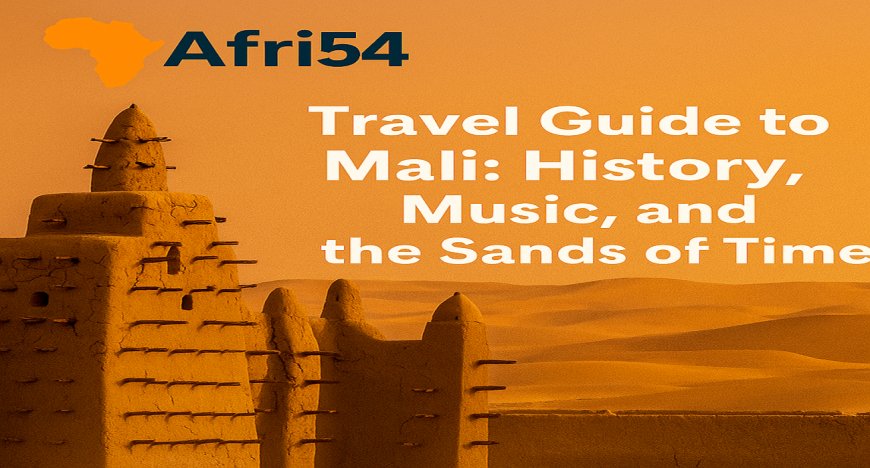Travel Guide to Mali: History, Music, and the Sands of Time
Explore Mali, the land of history and music. From Timbuktu and Djenne to Bamako and Dogon Country, discover Mali’s top attractions, culture, food, and travel tips in this complete guide.

Estimated read: 7 minutes
Mali is a country where history, culture, and tradition run deep. Once home to the great empires of Africa — including the Mali Empire of Mansa Musa, the richest man in history — Mali today offers travelers a mix of ancient cities, desert landscapes, and world-famous music. Despite challenges, it remains a land of heritage, resilience, and beauty.
Here’s your essential travel guide to Mali.
Quick Facts About Mali
-
Capital: Bamako
-
Currency: West African CFA Franc (XOF)
-
Official Language: French (Bambara widely spoken)
-
Climate: Hot desert in the north, semi-arid in central areas, tropical savanna in the south
-
Best Time to Visit: November to February (cooler and drier months)
Top Attractions in Mali
1. Bamako
The capital sits on the Niger River and is known for its vibrant markets, museums, and music scene. Don’t miss the National Museum of Mali and the bustling Grand Marché.
2. Timbuktu
Once the intellectual hub of Africa, Timbuktu is legendary for its ancient manuscripts, mosques, and role as a trans-Saharan trading center. Key sites include the Djinguereber Mosque and the Sankore University.
3. Djenne
Famous for the Great Mosque of Djenne, the largest mud-brick building in the world and a UNESCO World Heritage Site. The weekly market in Djenne’s old town is also a highlight.
4. Dogon Country
The Dogon people live along the dramatic Bandiagara Escarpment. Known for unique architecture, cliff dwellings, and mask dances, this is a must-visit for cultural travelers.
5. Segou
Located on the Niger River, Segou is famous for its colonial architecture, pottery, and lively festivals.
6. Niger River
A lifeline of Mali, offering scenic boat rides and connecting many historic towns.
Culture and Heritage
Mali is globally celebrated for its music, with artists like Ali Farka Touré and Salif Keita shaping African and world music. Griots (traditional storytellers) play a vital role in preserving history.
Festivals like Festival au Désert and Festival sur le Niger highlight Mali’s cultural richness, though some have been disrupted in recent years.
Food You Must Try in Mali
-
Tigadèguèna (Peanut Stew): A hearty dish served with rice
-
To: A millet or sorghum-based dish often eaten with sauce
-
Capitaine (Nile Perch): Fresh fish from the Niger River
-
Fried Plantains: A simple but popular snack
Travel Tips for Visitors
-
Mali has security concerns in some regions — always check travel advisories before visiting.
-
French or Bambara will help you connect with locals.
-
Cash is essential, especially outside Bamako.
-
Respect local customs, particularly in rural areas.
-
Dress modestly, as Mali is predominantly Muslim.
Final Thoughts
Mali is a country of timeless stories, music, and resilience. From Timbuktu’s manuscripts to the echo of drums in Bamako, it carries the legacy of Africa’s golden empires and the heartbeat of its people. For adventurous travelers, Mali offers a profound cultural journey.
✨ Have you listed your business on Afri54? Afri54 exists to solve a fundamental challenge faced by millions of African businesses: lack of visibility. Whether you run a guesthouse in Bamako, a pottery shop in Segou, or a cultural tour in Dogon Country, Afri54 helps bring your business online for the world to see. 👉 Join now






















